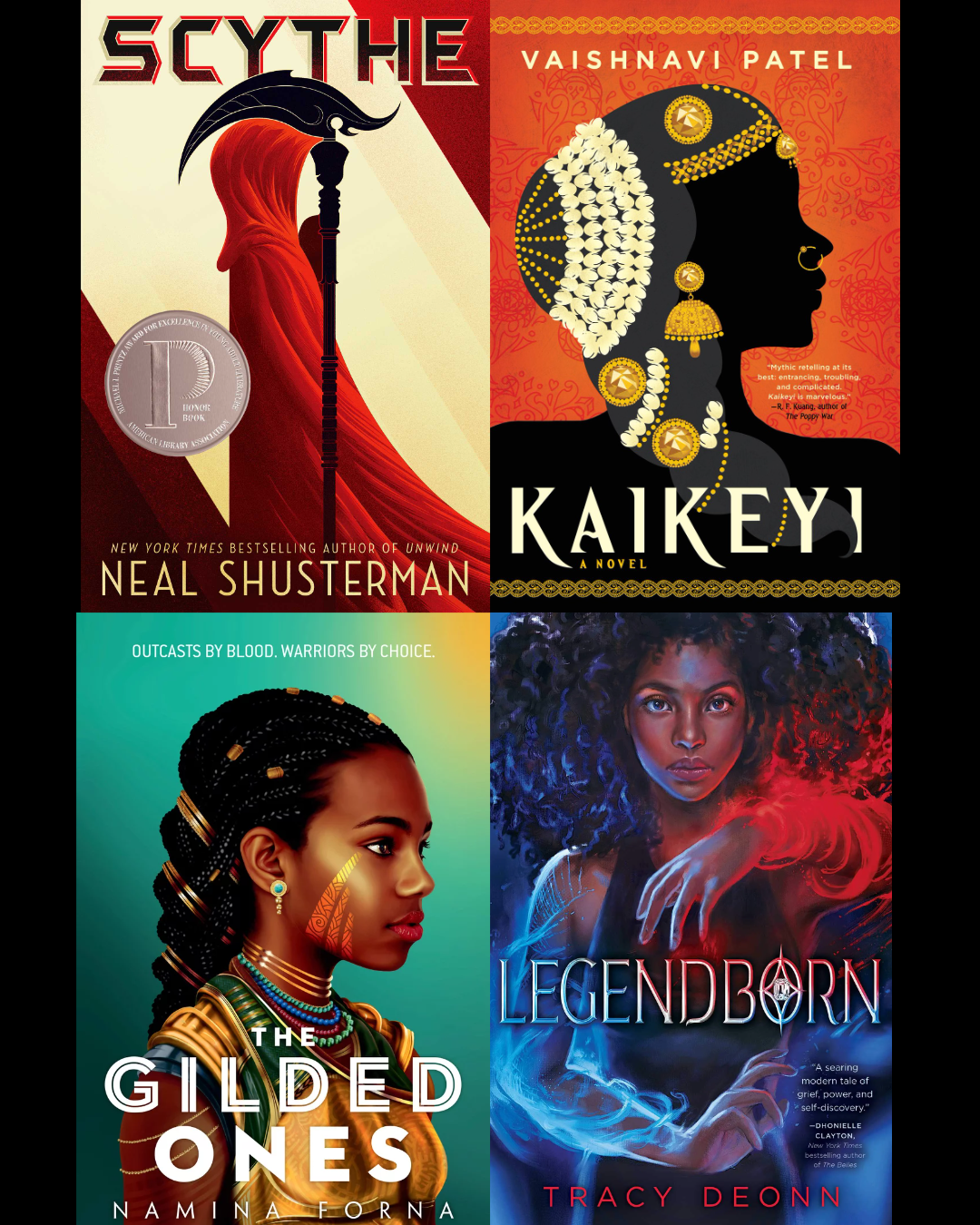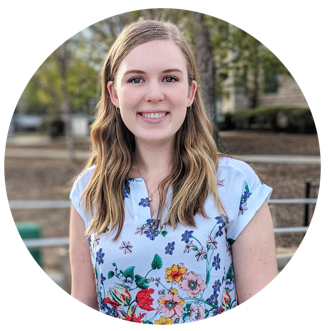
Head of Acquisitions and Access Services, Caitlin Soma, plays a crucial role in shaping our collections at Pitts. So what does she include in her personal collection?
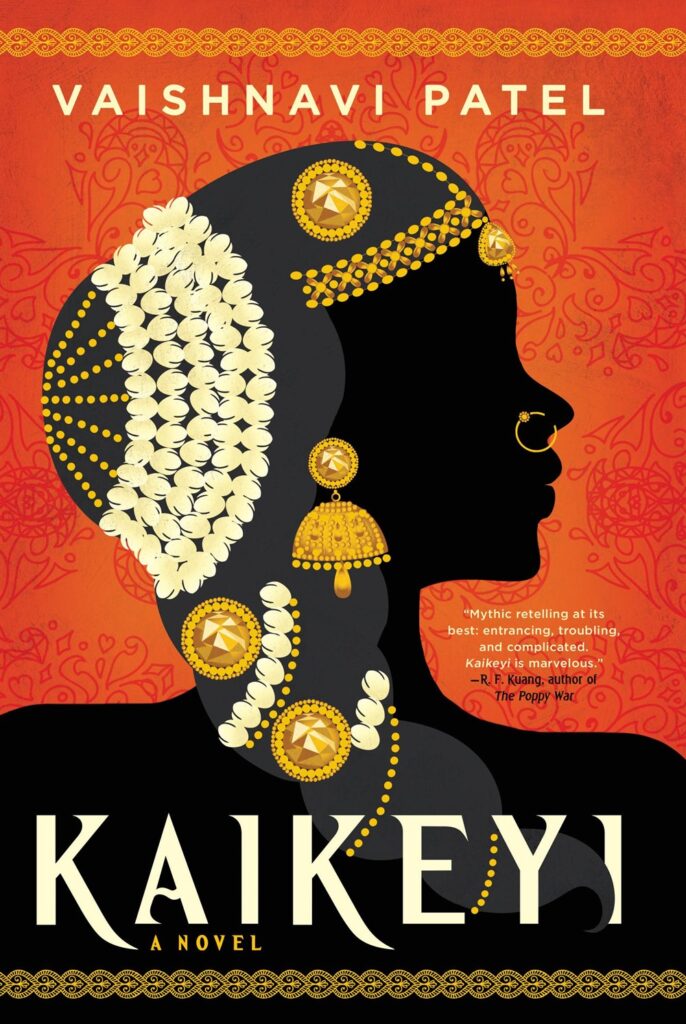
Her first suggestion is Kaikeyi by Vaishnavi Patel.
Caitlin says, “I love a feminist retelling of an old story, so this new take on Ramayana from the perspective of Kaikeyi, stepmother to Rama, was an obvious pick for me. In it, the author shows events in Ramayana from Kaikeyi’s point of view and demonstrates how harmful and reductionist the “evil stepmother” label can be. Humanizing a vilified figure while staying true to such a significant story and creating a readable novel is a tall order, and I think Patel does it exceptionally well.
A little background knowledge of Ramayana is helpful for getting the full experience from this book, but it isn’t necessary to enjoy it. But if you do find yourself wanting to dive deeper into the tale, what is summer for if not researching an unfamiliar ancient text?”
Kaikeyi is available at the Woodruff Library and the Dekalb County Library.

“Although the world of The Gilded Ones, by Namina Forna, and its sequel The Merciless Ones is fictional, it is inspired by stories the author heard growing up in Sierra Leone about the N’Nonmiton female military in Benin, the Mami Wata water goddess, and the great kingdoms, castles, and fortresses in Ethiopia, Zimbabwe, and Mali. Drawing on these inspirations, The Gilded Ones is Forna’s answer to the whitewashed epics of Tolkien and his ilk.
If you decide to read The Gilded Ones, please note that it’s so engaging you’ll want a copy of The Merciless Ones close at hand when you finish. The tale that Forna weaves is equal parts inspiring and heartbreaking, with twists and turns that make the characters’ struggles feel remarkably familiar for a world so different from our own.”
The Gilded Ones is available at the Woodruff Library, and both books are available from the Dekalb County Library.
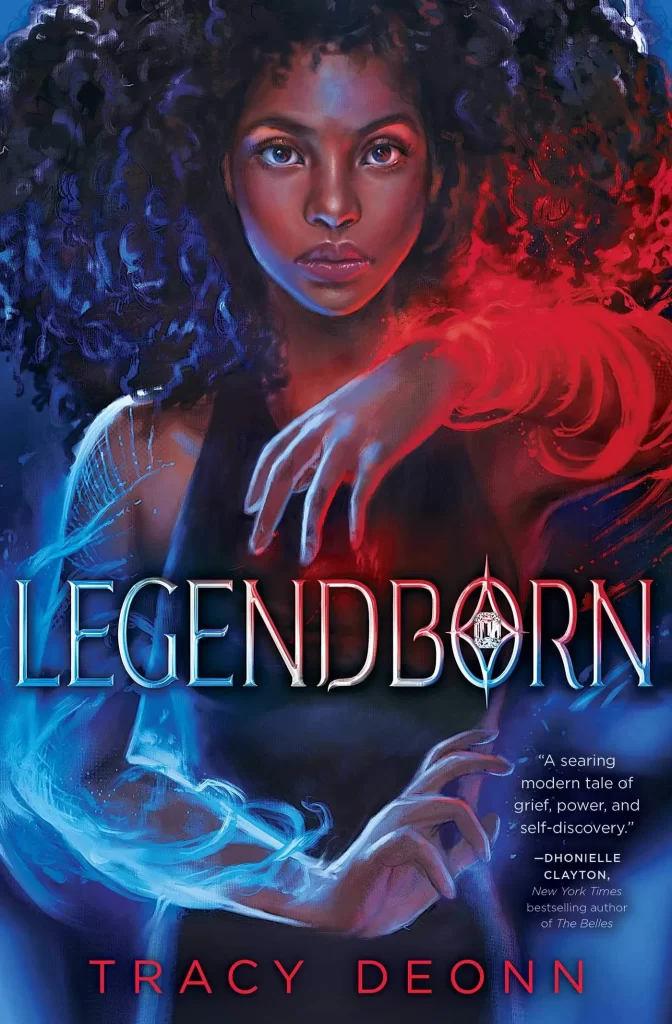
“What if the descendants of King Arthur and the Knights of the Round Table still existed, had magic powers, and went to school at UNC Chapel Hill? What’s more, that this magic were at the center of a generations-long war between demons, descendants of the Knights of the Round Table, and those with a power rooted in the violent history of slavery in the United States?
Legendborn, by Tracy Deonn, and its sequel Bloodmarked delicately weave these complex ideas into a series that is as exciting as it is thought-provoking, with the thrill of magic and adventure tempered by a deft handling of race and ancestry in the American South.”
Legendborn and Bloodmarked are available electronically at Emory and from the Dekalb County Library.
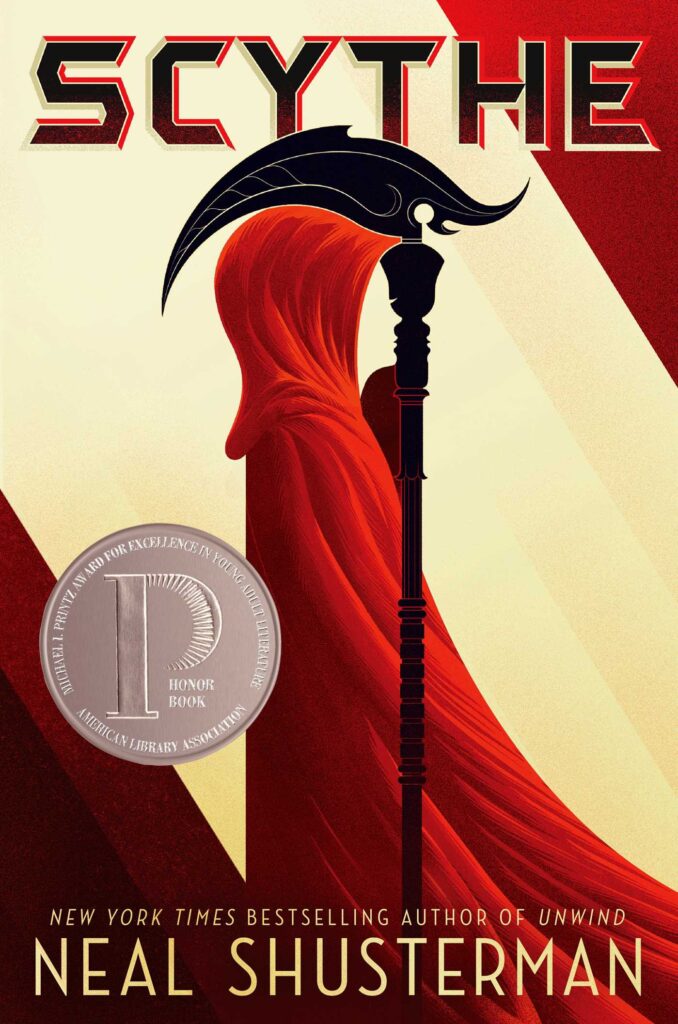
“Scythe by Neal Shusterman (with sequels Thunderhead and The Toll) is a trilogy that has been everywhere in YA literature the past few years. I was a few years late to the party but had a great time once I arrived.
The story takes place in a future post-death society run by an omniscient AI. The ethical and sociological implications of those concepts alone are enough to stay engaged, but the storytelling is also incredible. Every time you expect the plot to turn a certain way, it goes not just in the opposite direction, but in a direction you never realized was possible.”
Scythe is available in the McNaughton popular reading collection at Emory, online at Emory, and from the Dekalb County Library.
Stay tuned for more summer reading recommendations from the faculty and staff at Pitts and Candler!

